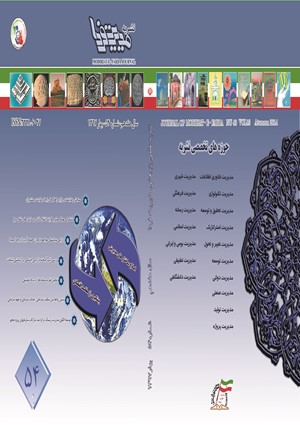مخارج عمومی و بهره وری نیروی انسانی در ایران
محورهای موضوعی :
سعید عسکری ماسوله
1
,
سید محمد تقی تقوی فرد
2
![]()
1 -
2 - دانشگاه علامه طباطبائی
کلید واژه: مخارج عمومی, بهره وری, نیروی انسانی,
چکیده مقاله :
مخارج عمومی در هر دولتی نیاز ضروری برای انجام وظایف دولت در حوزه های آموزش، بهداشت و امنیت و دفاع است. چگونگی هزینه کردن این مخارج می تواند بر بهره وری نیروی انسانی بطور مستقیم و غیرمستقیم اثرگذار باشد. این مقاله در پی آن است نسبت این مخارج با هم و اثر آنها با بهره وری نیروی انسانی را مورد بررسی قرار داهد. این مطالعه در بازه زمانی 1369 تا 1394 صورت گرفته و برای بررسی اثر مخارج عمومی از روش علیت گرنجر و روش حداقل مربعات معمولی استفاده شده است. نتایج حاصل از آزمون علیت نشان داد که بین مخارج آموزشی و مخارج بهداشتی با بهره وری نیروی انسانی علیت یکطرفه برقرار است و رابطه علی بین مخارج نظامی و بهره وری نیروی انسانی وجود ندارد. از طرف دیگر نتایج حاصل از برآورد مدل نیز حاکی از عدم اثرگذاری مخارج بهداشتی و نظامی بر بهره وری نیروی انسانی است که این موضوع نشان می دهد مخارج بهداشتی توسط دولت به درستی صرف نشده و مخارج نظامی نقش تکمیلی یا رقیب برای دو جزء مخارج دیگر یعنی مخارج آموزشی و بهداشتی ایفا نمی کند. اثر مخارج آموزش اثر مثبت و معناداری بود که نشان می دهد مخارج آموزشی شاید بشکل بهینه صرف نشود ولی توانسته بر بهره وری نیروی انسانی اثر مثبتی ایفا کند.
Public spending is a necessary requirement in every state for doing its tasks in the areas of education, health, security, and defense. How to spend on these expenditures can, directly and indirectly, impact the productivity of human resource. This paper seeks to examine the proportion of these expenditures together and their impact on the productivity of human resource. This study was conducted during the period 1990 to 2015 and the generalized least squares and Granger causality method was used to investigate the effect of public expenditure. The results of the causality test showed that there is a one-way causal relationship between educational expenditures and health expenditures and there is no causal relationship between military expenditures and human resource productivity. On the other hand, the results of the model's estimation indicate that the health and military expenditures don't effect on human resource productivity, which indicates the health expenditures are not properly spent by the government and military expenditures don't have the role of complementary or competing for two other components of public expenditure.
